 In lieu of a personal photo, S.A. Harazin has supplied us the book cover of “Blood Brother” instead.
In lieu of a personal photo, S.A. Harazin has supplied us the book cover of “Blood Brother” instead.Welcome to “Up Close & Personal.” For every interview I will be introducing a literary personality discussing his views and insights, as well as upcoming literary events around the world.
Today’s interview is with S.A. Harazin, author of Blood Brothers. The author lives in Georgia and worked as a nurse in a hospital for many years. S.A. Harazin has written a page turner novel of friendship, family and the world of teenage parties and drug use. It is a compelling stories told in diary entries.
EI: Would you share some early insight into who you were as a teenager with your readers? What were you like as a teen? Please tell us more about S.A. HARAZIN -- the woman behind the author.
S.A. Harazin: I was assistant editor for the school newspaper, and the historian for the Future Teachers of America. I had an after school job at the hospital as a nursing assistant. If I had time during breaks, I would do my homework. My grades were average. I did not read much. I did not have time between working and school.
EI: Do you express your inner self in your writing or do the personas you create exist only in your imagination?
S.A. Harazin: The personas I create exist mostly in my imagination, but a small part of them comes from my inner self. My main character, Clay, in ‘Blood Brothers,’ works as an orderly in a hospital and does things I would never have done—like sneak into a treatment room to see what is going on or pretend to be a doctor so he can get lab results. Of course, the stakes are high for him so he has the motivation to do these things.
EI: What is your response to the public perception that writers’ creative insight and energy is frequently the product of personal conflict?
S.A. Harazin: I think this is true for me. I write about subjects I care about and from life experience.
EI: What would you like to say to writers who are reading this interview and wondering if they can keep creating, if they are good enough, if their voices and visions matter enough to share?
S.A. Harazin: If you keep writing, you get better and better. You develop a voice and a style. You can get into the writing zone and sound fresh and unique. It takes time for most of us to develop our craft and our voices.
EI: Many writers describe themselves as "character" or "plot" writers. Which are you? And what do you find to be the hardest part of writing?
S.A. Harazin: I am character driven. In the first draft of Blood Brothers, my two characters were entirely different but became best friends because they loved to bike and were planning a cross-country trip. The plot developed as the characters made their choices.
The hardest part of writing for me is facing the blank page—getting the first draft written. I also have a problem with focusing. I easily get off track with a story and write in the wrong direction.
EI: Are you armed with notebook and pen at all the times? Do you always carry your laptop or PDA with you to write?
S.A. Harazin: I have a paper and pen with me at all times. I do not carry my laptop with me.
EI: Do you let anyone read your manuscript, before you send it to your editor or agent?
S.A. Harazin: I share a manuscript with two or three trusted writer friends before I submit it to my agent.
EI: Was there anyone who really influenced you to become a writer?
S.A. Harazin: Writing is part of who I am—even though I spent years and years in another career. A writer friend, Ronder Thomas Young, actually convinced me to submit my first novel manuscript when she referred me to an editor. I probably would never have submitted without the push.
EI: Now let’s shift gears here for a second... . tell us what is the premise of your book ‘Blood Brothers?’
S.A. Harazin: After a hard day at the hospital, Clay goes to Joey’s house and finds him hallucinating. They fight, and Joey hits his head. Joey is admitted to the hospital, and it seems as if he is all right until he lapses into a coma twenty-four hours later—before he has a chance to tell what happened before Clay arrived. Clay tries to find answers.
EI: Can you share with us some of the challenges you faced to publish this first ‘Blood Brother?” Is there anything about you that you would do differently, knowing what you do now?
S.A. Harazin: The challenges were mostly with the revisions—trying to find the emotional core of the story and understanding why characters acted the way they did.
I am not sure what I could have done differently. I needed time for the story to grow, and I think I needed more life experience. I do wish I had more formal training as a writer.
EI: What was the inspiration for your novel? What is your response to the public perception about your creative insight with your book?
S.A. Harazin: My initial inspiration came many years before I wrote the first word. I was at work one night in ICU taking care of a kid who was in very critical condition. I would watch his family and friends visit. I never knew anything about the kid, but I could feel the pain of his parents and friends. I never forgot.
Blood Brothers started as a short story told from the viewpoint of the nurse. This was published in Mediphors, A Journal of Health Care Professionals. Later, I rewrote the short story as a novel and told the story from the viewpoint of a seventeen year old.
I have been happy with reviewers’ response to the book. I hope that teens will relate to the characters.
EI: How much of Clay & Joey is planned out in your head? How do you know where you will go next with their characters? What was your biggest challenge in creating them?
S.A. Harazin: I knew their main characteristics, but I did not really know them until I had written a couple of drafts. I never knew where I was going next with the characters—they took over the story. There were scenes I did not want to write. There were things I did not want my characters to do or say, but I finally gave in.
The biggest challenge was understanding the female character, Michelle. I did not really like her. It took me a while to develop her. Originally, I tried to keep her off stage for most of the novel, but that was not working. She was needed.
EI: How did you develop these characters? Did you work them out in advance, or did they evolve as you wrote the story?
S.A. Harazin: They evolved as I wrote the story.
EI: What is a typical work day schedule when you are in full writing mode? Would you tell us a little about your process for editing, revising, and novel development? How long did it take you to write ‘Blood Brothers?’ including the time it took to research the book?
S.A. Harazin: I write everyday whenever I have a chance and late at night. During the day, I help my husband run his business.
I wrote the first draft of ‘Blood Brothers’ in fourteen days during the summer of 1999. It took me years to revise the novel. I would some times put the novel away for a while and work on something else. I did not need to research, but I verified some things with medical and police experts.
I received an offer on the book in June of 2005. I did two large revisions for the editor and three more minor ones. Most of these revisions involved clarifying the plot and developing some of the secondary characters through the flashbacks.
EI: What about writing for young adult & teens appealed to you?
S.A. Harazin: I love reading young adult books , and I am around teens a lot. It feels natural to write for teens.
EI: Do you feel more pressure, feel insecurities or are you able to separate all that from your own creative process?
S.A. Harazin: I feel pressure because I am a slow writer. I wish I could create faster.
EI: What's next for your fans?
S.A. Harazin: I have another novel under contract from Delacorte. It is still in the first draft stage.
EI: Thank you for contributing to my blog. It has been a pleasure for me to get to know you, and your work a little better. Would you like to end your interview with a writing tip or advice for young aspiring writers?
S.A. Harazin: Thank you!
My advice is to keep reading, writing, and rewriting. Take the time to develop your voice and style. Write something unique, something you feel passionate about. Write something only you could write.
To learn more about S.A. Harazin, please visit:
http://www.saharazin.com/
http://classof2k7
.com/authors/sa_harazin.php
http://classof2k7.com/interviews/authors/sa_harazin/
http://medwriter.livejournal.com/







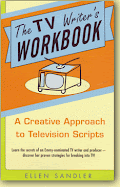



.png)



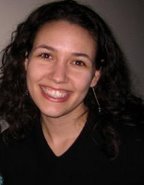
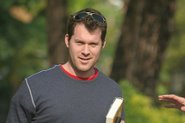

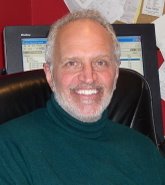
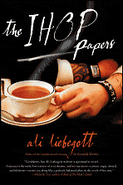
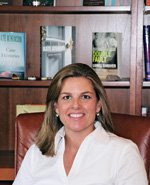
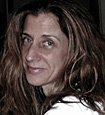
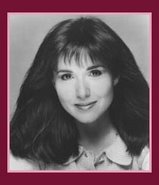
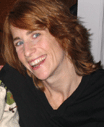





No comments:
Post a Comment